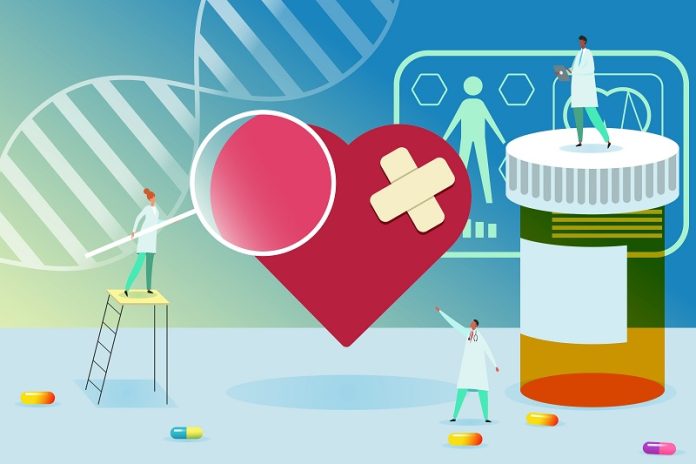
Nearly 500 million adults worldwide are living with type 2 diabetes, and over 200 million of them take metformin, a common medication that helps lower blood sugar levels.
However, as the effectiveness of metformin fades over time, many patients need to add a second medication to keep their blood sugar under control.
But these additional medications do more than just control blood sugar.
Recent evidence suggests that some of these drugs may also help reduce the risk of heart attack and stroke, which are common complications for people with type 2 diabetes.
Despite these potential benefits, the various second-line diabetes medications—including older drugs like sulfonylureas (SUs) and dipeptidyl peptidase-4 inhibitors (DPP-4s), as well as newer drugs like glucagon-like peptide-1 receptor agonists (GLP-1RAs) and sodium-glucose cotransporter 2 inhibitors (SGLT-2is)—have never been directly compared to see which is best at protecting the heart.
To address this gap, Dr. Rohan Khera, an assistant professor at Yale School of Medicine, along with his team and a large group of international scientists, conducted the first study to directly compare these second-line diabetes drugs and their effects on heart health.
The findings were published in the Journal of the American College of Cardiology on August 26, 2024.
The study analyzed nearly two decades of data from almost 1.5 million patients with type 2 diabetes and cardiovascular disease, using 10 international datasets from the United States, Germany, Spain, and the United Kingdom.
The results are not only clinically important but also scientifically rigorous, offering valuable insights for doctors deciding on the best treatment options for their patients.
Khera and his team found that the newer diabetes medications—SGLT-2is and GLP-1RAs—were significantly more effective at reducing the risk of heart attack, stroke, and death compared to older drugs like sulfonylureas. Specifically, SGLT-2is reduced the risk of cardiovascular events by 24%, while GLP-1RAs reduced it by 28% when compared to sulfonylureas. On the other hand, sulfonylureas, which include drugs like glipizide and glimepiride, were found to be less effective at protecting the heart.
Given that the newer drugs also control blood sugar just as effectively as the older ones, and come with fewer side effects like hypoglycemia (low blood sugar) and weight gain, Khera suggests that doctors should carefully consider these findings when choosing treatments, especially for patients at high risk of heart problems.
What makes this study particularly noteworthy is the rigorous scientific approach used by Khera and his collaborators. The research was a “comparative effectiveness study,” a type of observational study that compares the benefits and risks of different treatment options. Unlike clinical trials, where conditions are controlled by the researchers, comparative effectiveness studies involve real-world data, which can include more variables that might influence the results.
To ensure accuracy, the team used advanced methods to account for these variables. They also gathered data from multiple countries to create a large and diverse sample size, which helps reduce bias and increases the reliability of the findings.
Additionally, the researchers used a “federated analysis” approach, where data from different institutions were standardized and analyzed locally, minimizing privacy concerns associated with sharing health data across sites. They also conducted rigorous statistical tests to confirm that their findings were specific to cardiovascular outcomes.
Khera and his team have made all their methods, codes, and results publicly available, encouraging other scientists to build on their work. Khera hopes that this study sets a new standard for future research in this field, providing reliable evidence that can guide clinical decisions and improve patient care.
“We need more studies like this, done rigorously and transparently, to build trust in the findings and make sure they are robust enough to guide our decisions,” Khera says. “This research has the potential to change clinical practice and improve outcomes for millions of people with type 2 diabetes.”
If you care about diabetes, please read studies about 5 vitamins that may prevent complication in diabetes, and how to manage high blood pressure and diabetes with healthy foods.
For more health information, please see recent studies about vitamin D and type2 diabetes, and to people with type 2 diabetes, some fruits are better than others.
Source: Yale.



